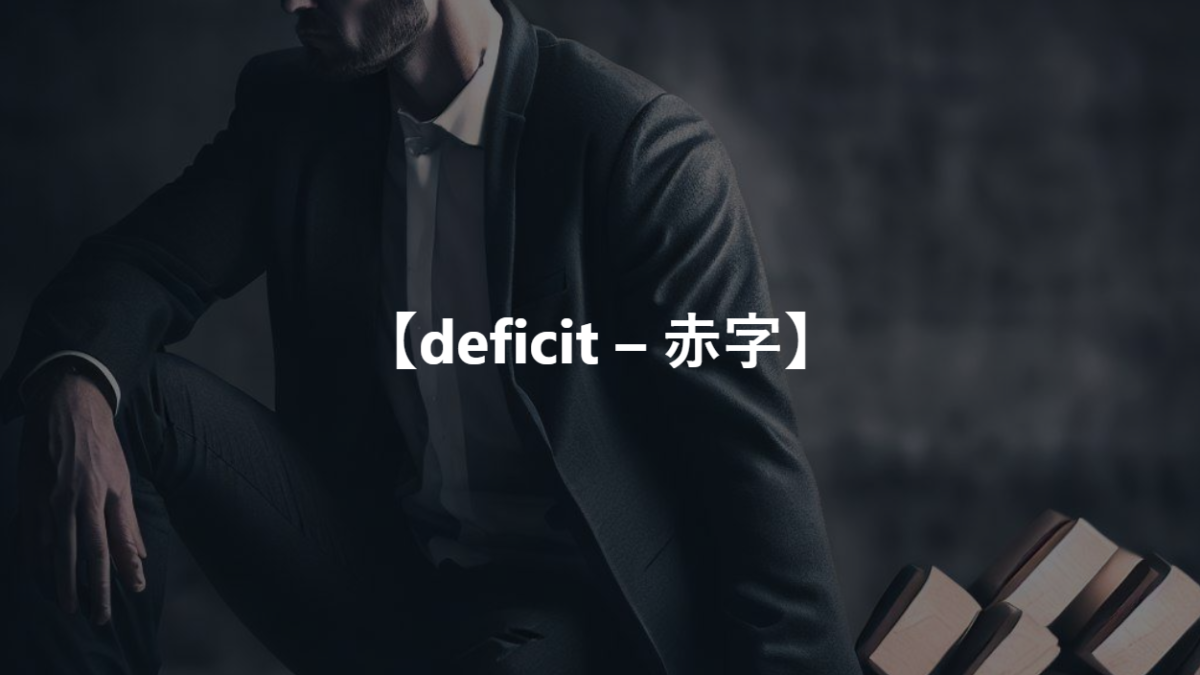「国のbudget deficitは、将来世代への負担となる」
📚 意味と用法
deficit は、名詞として、ある量が必要な量に満たない状態、特に金銭的な「不足額」や「赤字」を指します。国の「財政赤字 (budget deficit)」や、輸入が輸出を上回る「貿易赤字 (trade deficit)」など、経済や財政のニュースで頻繁に使われる言葉です。また、より一般的に、能力や注意などの「欠損」を指すこともあります。
財政赤字 (A budget shortfall)
The government is trying to reduce the budget deficit.
(政府は財政赤字を削減しようと努めている。)
貿易赤字 (A trade imbalance)
The country has a large trade deficit with China.
(その国は中国に対して、大きな貿易赤字を抱えている。)
🕰️ 語源と歴史
「Deficit」は、ラテン語の動詞「deficere」に由来します。これは「不足する、欠ける」という意味で、接頭辞「de-」(離れて、否定)と「facere」(作る、なす)から成り立っています。「作ることから離れる」→「作られない」→「不足する」という連想です。”deficit” は、この動詞の三人称単数形で「それが不足している」という意味で使われていたものが、名詞として定着しました。
🔄 類義語
⚡ 対義語
関連する対比
財政における deficit (赤字) は、収入が支出を上回る surplus (黒字) とは正反対の状態です。
💬 実践的な例文
The company reported a deficit of $2 million last year.
その会社は昨年、200万ドルの赤字を報告した。
There is a significant deficit in the healthcare system.
医療制度には、深刻な不足がある。
He has a sleep deficit after working late all week.
一週間ずっと遅くまで働いたので、彼は睡眠不足だ。
The team’s main deficit is its lack of experienced players.
そのチームの主な欠点は、経験豊富な選手が不足していることだ。
Running a budget deficit can lead to national debt.
財政赤字を出すことは、国家債務につながる可能性がある。
🧠 練習問題
以下の空欄に入る最も適切な単語を選んでください。
1. When spending is more than income, there is a ______.
解説:
支出が収入を上回る場合、それは「赤字 (deficit)」です。
2. The adjective form of “deficit” is ______.
解説:
名詞 “deficit” に関連する形容詞は、「不足した」を意味する “deficient” です。
3. The opposite of a deficit is a ______.
解説:
「赤字」の対義語は、「黒字、余剰」を意味する “surplus” です。
4. The country’s trade ______ has been growing for years.
解説:
国の「貿易赤字 (trade deficit)」が何年も拡大している、という文脈です。
5. The root “facere” in “deficit” means to ______.
解説:
語源で説明した通り、ラテン語の “facere” は「作る、なす (make or do)」ことを意味します。

